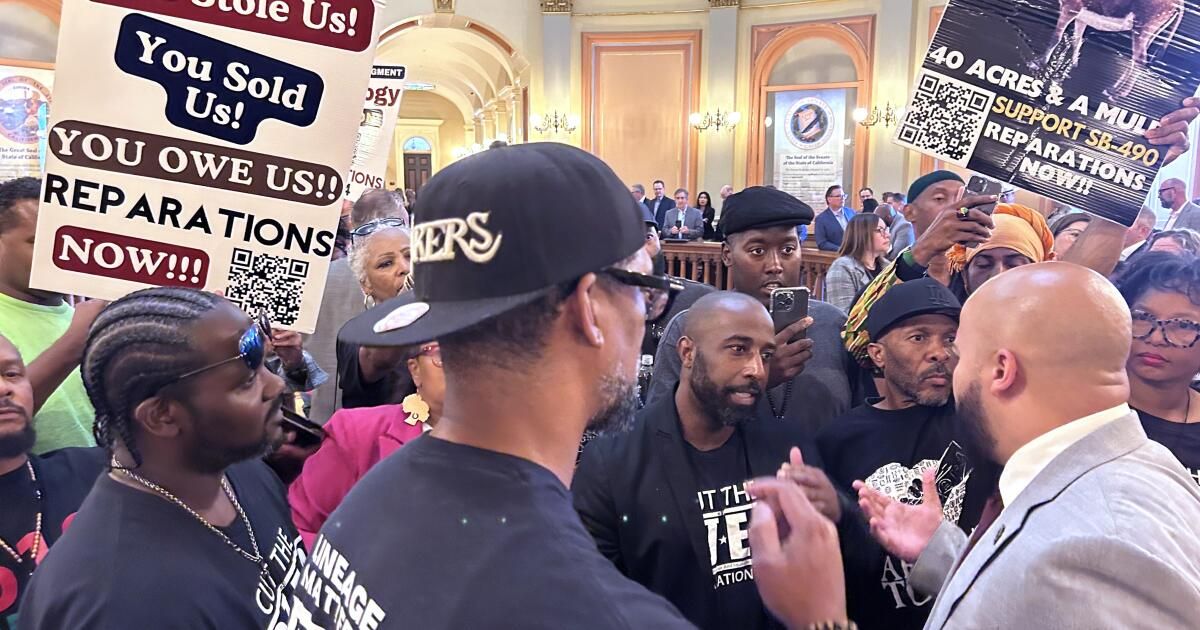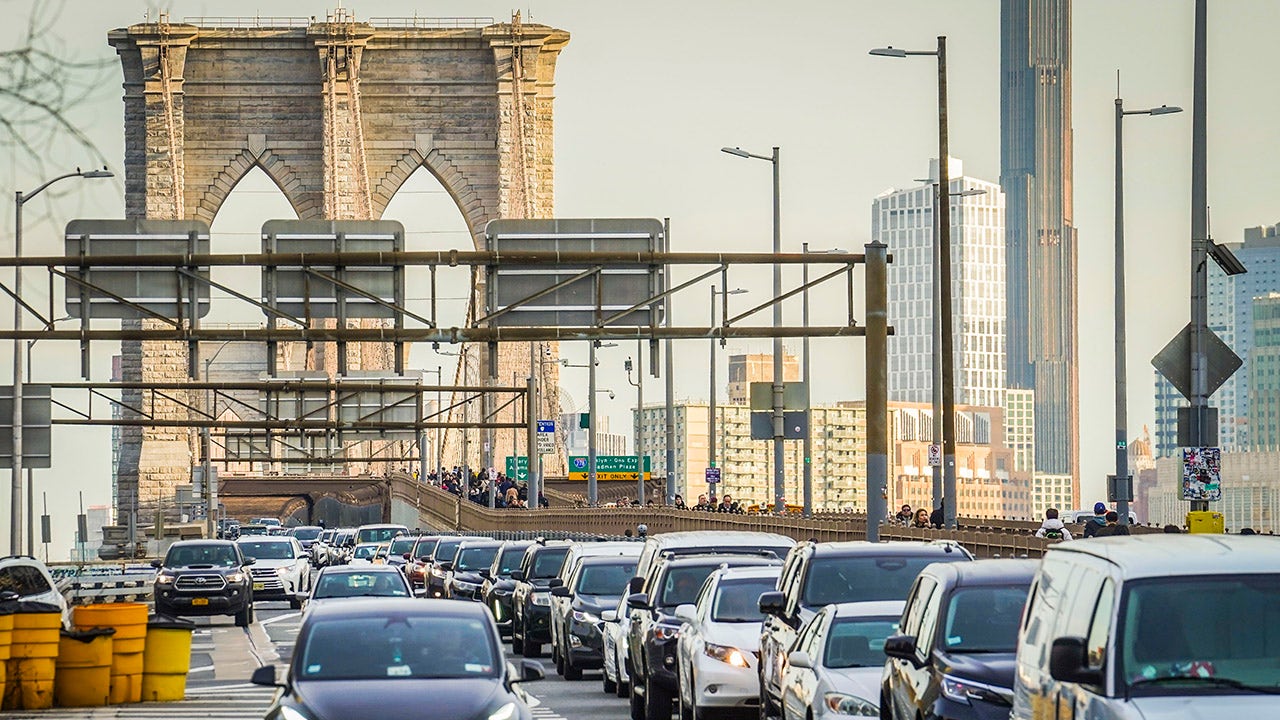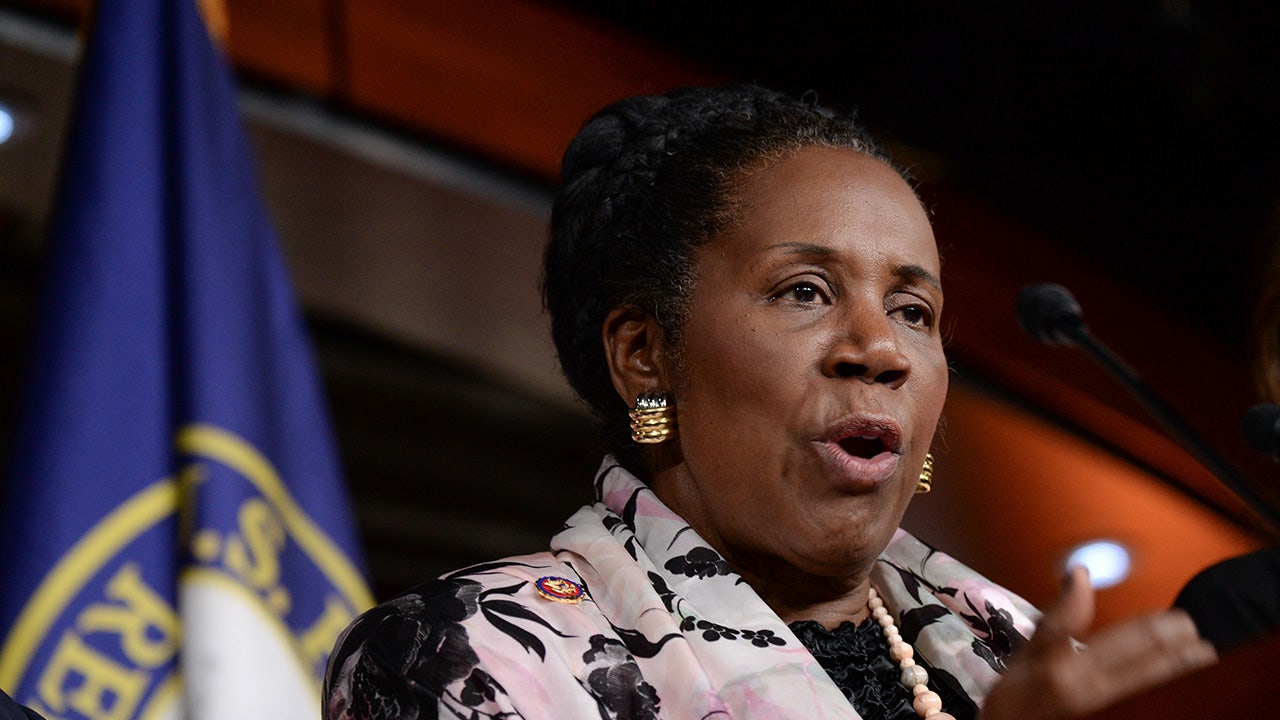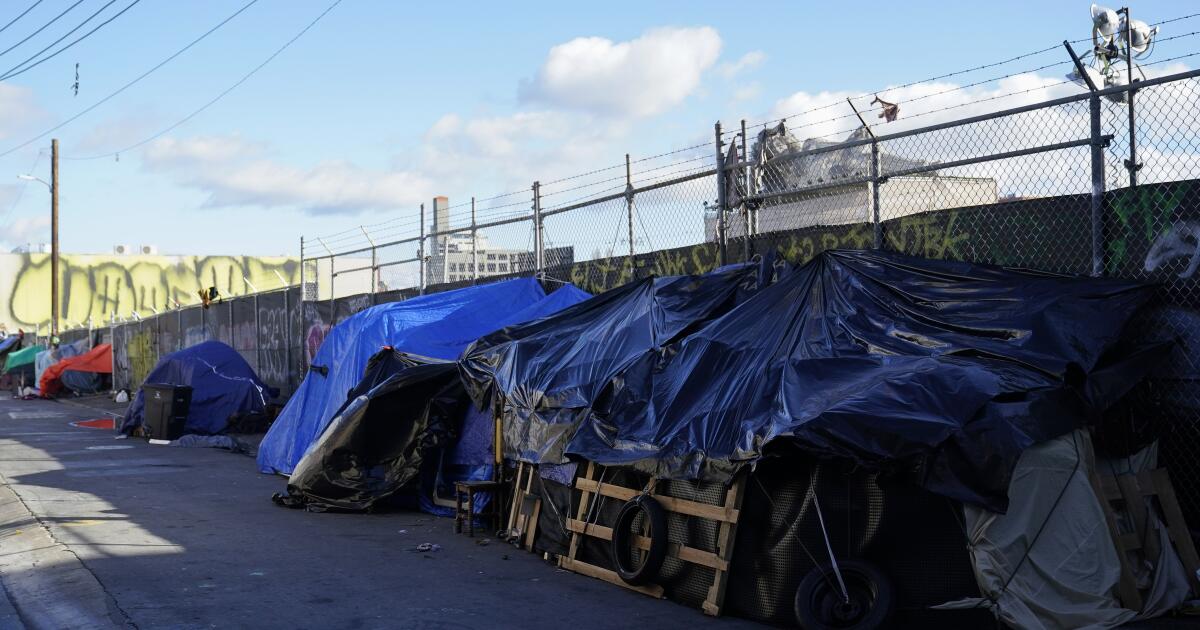In 2020, Gov. Gavin Newsom and California lawmakers pushed legislation to create a “first-in-the-nation” state task force to study and propose solutions to atone for the legacy of slavery.
Four years later, their work to provide reparations is more piecemeal than record-breaking, fueling frustration among advocates who packed the Capitol as lawmakers cast their final votes of the legislative session on Saturday.
California’s legislature, paralyzed by a state budget deficit and the challenges of supporting a politically volatile issue in an election year, has approved a limited slate of reparations bills. The meager progress, though applauded by some lawmakers and advocates, in a state as liberal as California could serve as a warning on the issue for the rest of the nation.
“I think what it shows is that when push comes to shove, Democrats remain unwilling, unable and uninterested in truly supporting these efforts beyond symbolic and less substantive ways,” said Tatishe Nteta, a political science professor at the University of Massachusetts Amherst and director of the UMass poll.
The California Legislative Black Caucus announced 14 priority reparations bills in January based on recommendations made last year by the reparations task force. Lawmakers presented the legislation as a first step focused primarily on enacting policy changes in education, health care and criminal justice, while omitting cash payments in light of the state’s financial woes.
Lawmakers approved 10 bills in the package before adjourning Saturday, including a standout piece of legislation requiring a formal apology from the state for “perpetuating the harms faced by African Americans by instilling racial bias through segregation, public and private discrimination, and the unequal disbursement of state and federal funds and [declaring] that such actions are not repeated.”
The Legislature has introduced a measure on the November ballot that asks voters to remove language from the California Constitution that allows involuntary servitude as a form of punishment for crimes. Another bill would end a work requirement for able-bodied state prisoners and instead develop a voluntary labor program if the ballot measure banning involuntary servitude passes.
Other bills establish a process for the state to review and investigate allegations of racially motivated property takings by governments using the power of eminent domain, seek to increase and track participation in vocational training education among Black and low-income students, and expand Medi-Cal coverage, pending federal approval, to include medically supported food and nutrition benefits.
The legislation now on Newsom’s desk also includes new oversight of book bans in California prisons, a requirement that grocery stores and pharmacies give written notice at least 45 days before closing and the expansion of a state law banning discrimination based on hairstyle to include youth sports.
Several bills seeking to restrict solitary confinement in prisons, prioritize African-American descendants of people who were enslaved in the United States for state licenses and establish grants to fund local initiatives aimed at reducing violence in black communities failed in the Legislature. A proposal to amend the state constitution to allow funding for programs that increase life expectancy, improve educational outcomes and alleviate poverty among certain racial and ethnic groups also failed.
Assemblywoman Lori D. Wilson (D-Suisun City), who leads the Legislative Black Caucus, said work on reparations will continue next year and that the successful bills marked an important first step.
“It was definitely intentional to start laying the groundwork,” he said. “We hope to continue to build on that foundation and be able to really engage the community in the work that we’re doing.”
Sen. Steven Bradford (D-Gardena), who introduced the bill to begin the process of reversing racially motivated land and property seizures in the reparations package, pushed two additional bills that failed when the Legislature refused to bring them up for a final vote: creating a California Bureau of American Freedmen’s Affairs and establishing a Reparations and Restorative Justice Fund to pay for and carry out reparations policies passed by lawmakers. Neither bill was on the Black Caucus’s priority list.
As bills languished in the Assembly on Saturday, reparations advocates gathered in the Capitol Rotunda to lobby lawmakers.
“Bring the bills!” they shouted every time a member of the Assembly left the room.
Chris Lodgson, wearing a cap embroidered with the words “Cut the Check,” said the bills passed do not represent significant change.
“An apology is not reparation. The extension of the Crown Law [to prohibit discrimination against Black hairstyles]”That's not fucking reparation. Passing a law so people can read whatever books they want to read is not fucking reparation,” he said.
“The only bills that really allow us to make amends are the ones they are afraid to introduce.”
Bradford said the bills' failure was the biggest disappointment of his 14-year career in the Legislature, which came to an end Saturday.
“I think it was time to act. The nation is watching and I think we owe it not only to African Americans in California, but to the entire country, to set a good example,” she said. “It saddens me.”
The legislation introduced by the Black Caucus was based on recommendations from California's reparations task force at the conclusion of a historic two-year process last summer to study the effects of slavery, demonstrate the ways the government continues to discriminate against Black people and suggest policy changes to state lawmakers.
The sweeping reform wish list included politically challenging proposals to provide cash payments, abolish the death penalty in California and offer free college tuition to eligible descendants, among dozens of other ideas.
Direct financial compensation has become a particularly sensitive issue, sought by activists but opposed by most of the general public.
Newsom, who signed the law that launched the reparations movement in California, has yet to endorse the idea of the state providing cash payments to descendants of African Americans who were enslaved. The governor, task force members and lawmakers have repeated the idea that reparations are about more than just cash.
A poll by the University of California, Berkeley’s Institute of Governmental Studies, co-sponsored by The Times, found that 59 percent of California voters oppose cash payments, compared with 28 percent who support the idea. More than 4 in 10 voters “strongly” oppose cash payments.
A national University of Massachusetts poll in January found that 67% of respondents opposed the federal government providing cash payments, compared with 34% who said it definitely or probably should pay descendants. Among those opposed to the idea, 29% said their reason was that descendants do not deserve the money.
Nteta said California’s work to research and show evidence of the systemic ways racial identification has affected the Black community exceeds the federal government’s efforts to detail and track the impact of slavery. But there is an inherent tension between advocates who want to apply pressure to enact changes now and lawmakers who recognize that pushing the unpopular idea too far and failing could be “the death knell for reparations as a policy.”
The nomination of Vice President Kamala Harris, a Black woman and Californian, as the Democratic presidential candidate adds another layer of complexity to reparations politics.
Nteta said Republicans mobilize white voters, either directly or implicitly, by suggesting that Democratic candidates will improve the lives of Black Americans and people of color in ways that negatively affect whites.
“When Harris starts talking about reparations and defining herself, it’s very likely that that will be used as a means of publicity and showing that if elected, she will disproportionately support the African American community,” Nteta said. “So the intertwining of her racial identity and her partisan identity is actually bad news for the idea of a potential president talking about reparations or even doing anything about it. There will be a huge political backlash if she does speak out about it.”
Democrats, including those who support reparations, are also unlikely to pressure her to speak out on a controversial issue if it could hurt her chances of beating former President Trump, she said. Harris supported the idea of studying the generational effect of discrimination and institutional racism to consider possible interventions ahead of the Democratic primary in her failed bid for president in the 2020 election.
Any action taken in the Golden State could also be blamed on Harris. Trump and his running mate, Sen. J.D. Vance of Ohio, criticize her as a “left-wing progressive Californian from San Francisco” to suggest she is out of touch with the United States, Nteta said.
“The passage of a reparations bill by the California Legislature would be a godsend for the Republican Party and for Donald Trump, demonstrating and arguing that this is what the future looks like with a California president who grew up in a state and has those broad ideals,” Nteta said. “So it makes sense that there are very few revolutionary or extremely progressive policies ahead of the fall election.”












